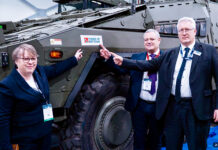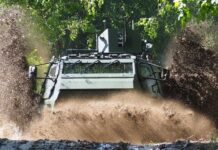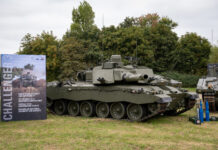The British Army has concluded its first ever trials of heavy uncrewed ground vehicles (H-UGVs), the UK Ministry of Defence’s Defence Equipment and Support (DE&S) organisation announced on 31 March 2023.
Held over two weeks at the army’s Armoured Trials and Development Unit (ATDU) in Bovington, Dorset, three H-UGVs underwent stringent trials to test their effectiveness in battlefield situations: the Robust from Elbit Systems, the Type-X from Milrem, and the Autonomous Combat Warrior (ACW) Wiesel from Rheinmetall (an unmanned version of the company’s Wiesel 2 light airmobile tracked armoured vehicle).
During the trials, organised by DE&S’s Future Capability Group (FCG), the H-UGVs were tested against a range of criteria, including speed, how they coped with difficult terrain and their communication systems.

“It’s been a fascinating experience to test these platforms, see what they can do and what could potentially be achieved on the battlefield with crewless vehicles in the next 10, 20 or 30 years,” Lieutenant Colonel James de St John-Pryce, the ATDU’s commanding officer, was quoted as saying in a DE&S press release. “Make no mistake: we are at step one of a very long journey, but I am excited by what we witnessed during the trials, which were a great example of collaboration between the army, FCG and our industry partners.”
James Gavin, head of the FCG, added, “Over the two weeks of trials and demonstrations we have had the door opened to where we may one day go with these vehicles. This has been about drawing industry and the Army and together to put these platforms through their paces and see what they can do now, and what might be possible in the future. Next, we will look at the data generated during the trials to see what worked, what needs more thought and where we could go next.”
The British Army defines an H-UGV as any vehicle weighing more than five tonnes that is remotely controlled.
Peter Felstead











